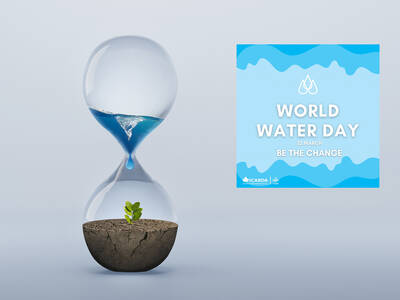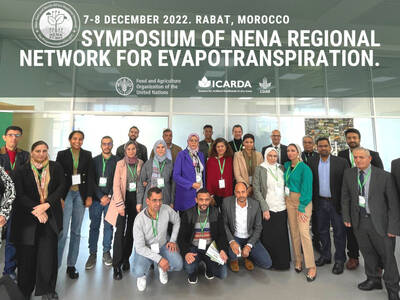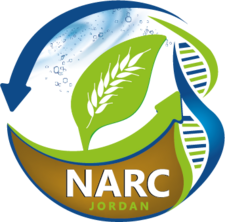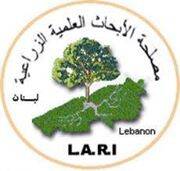Data query and visualization
ICARDA manages a dashboard that can be used to visualize and query the measured ET data to benefit the interested parties. One can query and compare by location, by season, crop or by time period

ICARDA, in collaboration with the Food and Agriculture Organization of the United Nations (FAO) Regional Office for Near East and North Africa, has established the first regional network for field measurements of evapotranspiration in five countries - Egypt, Jordan, Lebanon, Morocco and Tunisia. The network builds common understanding and methodology on evapotranspiration measurements in the field through remote sensing to deliver accurate data assessments. In addition, it builds understanding on how to use these assessments for agriculture-related applications, such as water accounting, water productivity, and water management.




The project will validate the existing remote sensing databases on evapotranspiration, developing an updated work methodology. It will benefit all countries of the NENA region by allowing them to develop appropriate intervention strategies to face water scarcity.
The project main objectives are: to establish and operate a regional network of specialized institutions within Egypt, Jordan, Lebanon, Morocco and Tunisia; to validate existing evapotranspiration databases; to develop an appropriate strategy for remote sensing data analysis.
The creation of the regional network is expected to be an additional achievement of the FAO water scarcity initiative. Thanks to the validation process, and the development of an updated work methodology, the project will provide the bond between the top-down approach of water accounting and remote sensing (already ongoing) and the bottom-up approach of farm-field determinations (still missing).
UPDATES
In 2021, ICARDA and FAO produced a popular six-part webinar series on state-of-the-art evapotranspiration measurement methods, which attracted over 1,700 international and regional participants. The series coincided with a new regional network, initiated by ICARDA and FAO, to improve evapotranspiration field measurements and enhance adaptation to climate change and freshwater scarcity in the five target countries.
In 2022, FAO extended the evapotranspiration network to field measurement of actual crop-water consumption in Algeria, Egypt, Jordan, Lebanon, Morocco, Palestine and Tunisia. The network compared the measured field data and remote sensing data of evapotranspiration to implement distance coaching for the regional network, and to organize a regional virtual symposium on evapotranspiration measurement. In the same year, ICARDA introduced interventions in Madhya Pradesh, India, including weather-based crop-growth analytics and disease-outbreak alerts, soil moisture-based irrigation, motion-activated, camera-based pest detection and remedial advice, satellite and drone-based remote sensing for early warning on pests, disease, and crop abiotic stresses, as well as soil testing-based fertilizer advice.

ICARDA manages a dashboard that can be used to visualize and query the measured ET data to benefit the interested parties. One can query and compare by location, by season, crop or by time period

The webinars covered a number of evapotranspiration measurement themes, including underlining the time and space scale of measurement applications and analyzing their accuracy and suitability for use in arid and semi-arid environments.









© 2026 International Center for Agricultural Research in the Dry Areas (ICARDA)